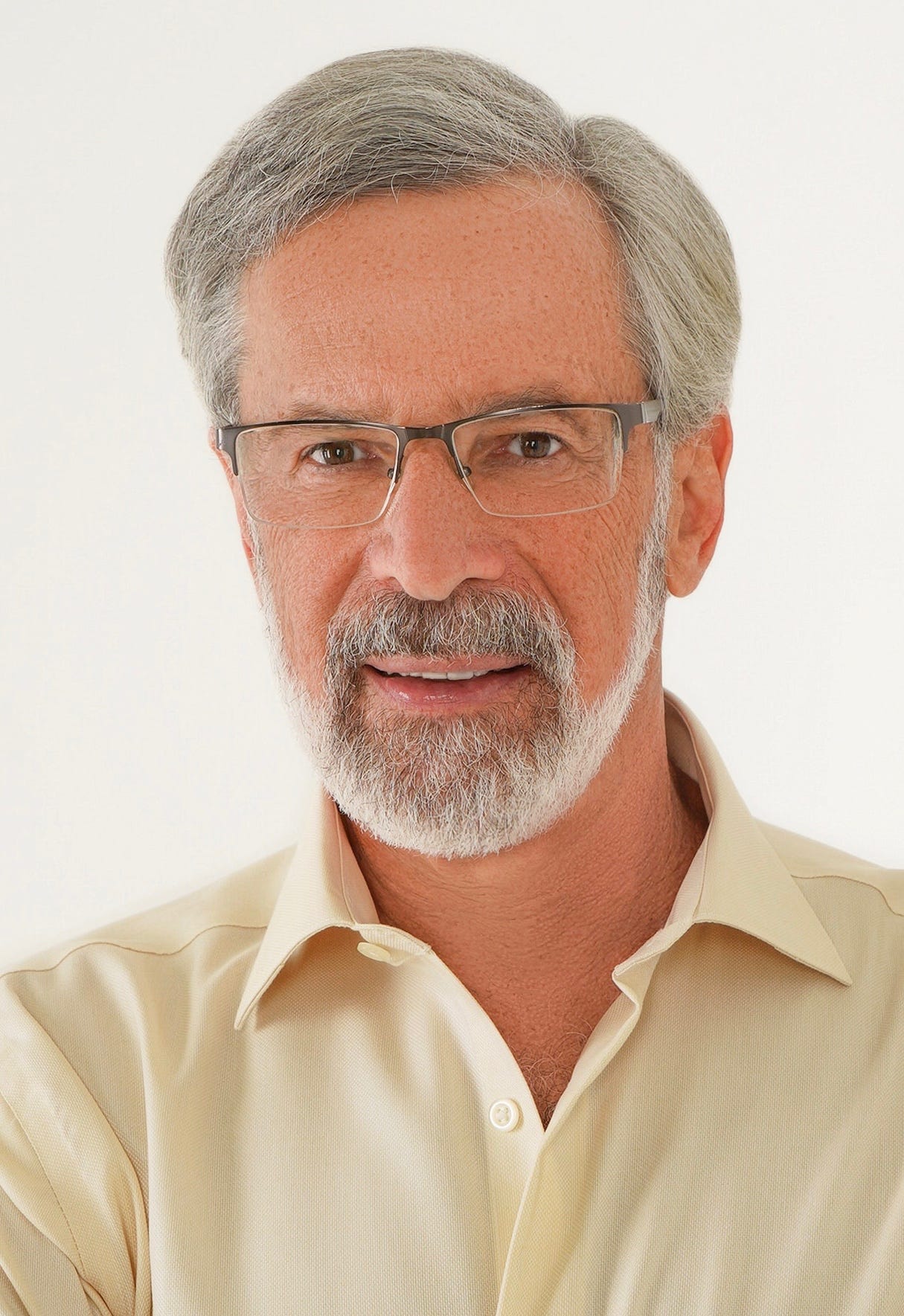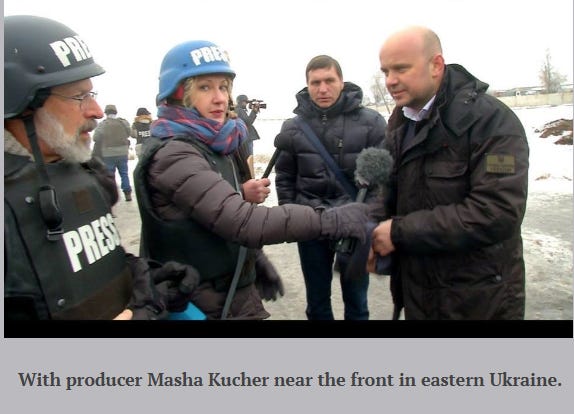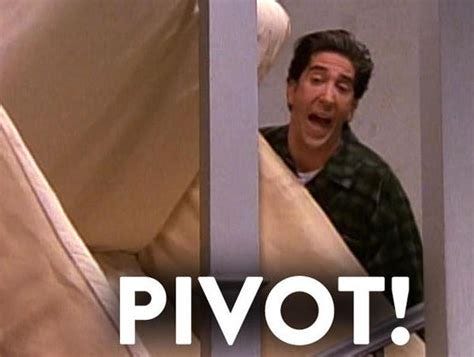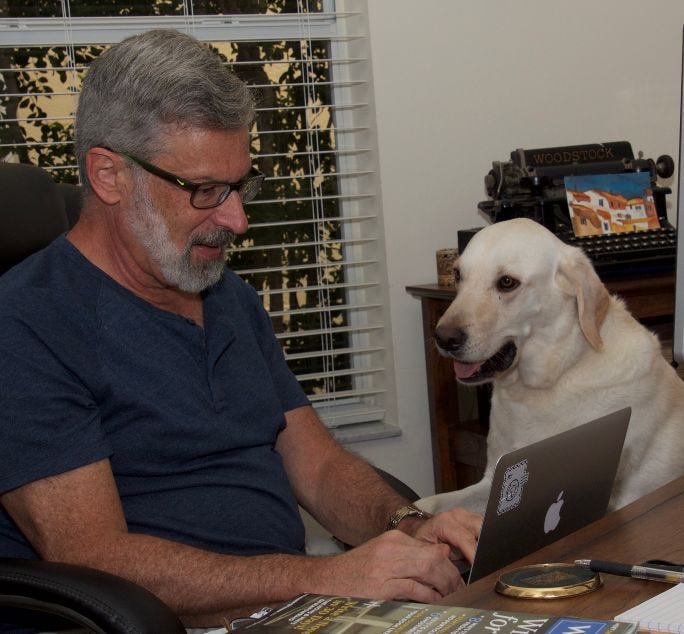MY INTERVIEW with AUTHOR & LONGTIME JOURNALIST, AL PESSIN
MY INTERVIEW with AUTHOR & JOURNALIST AL PESSIN
INTERVIEW with Author & Journalist, AL PESSIN
https://cddevincenti.substack.com/publish/post/145198138?back=%2Fpublish%2Fposts%2Fdrafts
This month, I had the pleasure of sitting down with friend and colleague Al Pessin—an accomplished author, playwright, and former foreign correspondent with over 15 years overseas in a nearly 40-year journalism career. His postings in Hong Kong, Islamabad, Beijing, Jerusalem, and London inspired his fiction, as did his time in the White House press corps.
Al spent most of his journalistic career with one employer, the Voice of America. In addition to his reporting, Al spent 10 years as a senior editor, news manager, and executive producer of VOA’s first live radio-television simulcast coverage of the presidential debates and election night in 2000. For more of his amazing accomplishments, visit his website (see links at the end of this interview)
During our insightful conversation, Al dove into his extensive career in print media, sharing his most valuable writing tips and the experiences and challenges he faced along the way. Al offered a candid look at his journey, from his early days as a budding journalist to becoming a seasoned writer, providing inspiration and wisdom for aspiring writers and professionals alike.
Enjoy!
- Caryn
INTERVIEW with AL PESSIN:
Hi, Al. Thank you for letting me interview you today. With your permission, I’m going to jump right in.
1. How would someone describe you? Journalist, Author, Bon Vivant.
2. When did you become a fiction writer/author? I started writing my first novel in August 2015, a few weeks after I retired from my day job.
3. What was your journey to becoming a published author? It was long and frustrating, but in the end I was very fortunate. Here’s the abbreviated timeline (yes, abbreviated):
2015 Aug, start writing.
2016, Feb, start working with a developmental editor with one-third of the manuscript.
June, finish first full draft, send to beta readers.
August, finish revised draft after beta readers’ critiques. Start querying.
October, Get an agent at a major New York agency. This was extremely fast. We began doing a series of revisions.
2017 February, she queries publishers and, over several weeks, gets rejections.
April, we have a major disagreement about further revisions, try to resolve it, and wait for more publisher responses. They are all negative.
December, I fire my agent. Yes I did. I was not willing to make the major change she wanted.
2018 January, I start querying all over again, agents and also publishers who accept direct queries from authors.
April, As I continue to query, I happen upon Kensington Publishing (the largest non-big five publisher in the U.S.) and an editor who likes thrillers. I query her. She responds in 15 minutes (a record!) asking for the full manuscript. She estimates a one-month response time. I remind her every couple of months for the rest of the year. I repeat, for the rest of the year.
October, I attend the Florida Writers Conference and pitch several agents and editors.
2019 January 8, I receive an offer from a small publisher who I met at the Florida Writers Conference. I inform the Kensington editor, who promises to finally read the book immediately.
January 29, (not exactly “immediately”) I get an offer from Kensington for the book and two sequels, which I accept. After stringing along the other publisher, I politely decline their offer.
2020 March 31, SANDBLAST is published (a week after all the bookstores closed for the pandemic. *sigh*).
That’s four years, eight months after I first put my finger to the keyboard, including two years, four months from the first query to the contract offer, and one year, two months from when I received the contract to the publication date. Whew!
4. What did you do before you became an author? Were you always writing? Who can remember? But seriously, I was a journalist, editor, and foreign correspondent for 40 years, so I was always doing writing of a different kind. And I could type pretty well. I like to say I went from trying to portray truth through fact to trying to portray truth through fiction.
5. What’s your writing ritual? Do you walk or garden, light a candle, or write in a specific chair? Do you have a method that is unique to you?
I don’t garden. Ever. I walk only with my dog, although that sometimes helps me solve plotting problems. I work at my desk in a comfortable chair, usually in the morning, as many days a week as I can. I have the advantage of not having a job to go to or kids to take care of. I also tend to work well on airplanes.
5. Can you talk about any special skills that you have? What is it that makes you unique in those skills? Aside from typing, I have developed the ability to both own my work and be open to criticism and editing. I developed this through my time as a journalist—some years writing, some years editing. I think it’s important for writers to have this ability.
7. What has your journey been like that you are willing to share? It is often really discouraging, even soul crushing. The rejections, the lack of responses, the conflicting recommendations. I think writers have to know what they’re getting into when they embark on a journey to try to get traditionally published. It’s more difficult than ever to break through, even more difficult than when I started a few years ago. I know this because I’ve been shopping around my fourth book for over a year.
So, it’s important to determine at the outset what your publishing goal is, whether you need to go traditional to achieve it or whether hybrid- or self-publishing is better for you. Of course, you can start out trying the traditional route and move to the others later.
8. What was growing up like in your family? Was writing encouraged? How did that lead you to where you are today? I had a great upbringing. Academics were certainly encouraged. My mom had a love of reading and ambitions to travel to exotic locales. She encouraged me to read adventure books and I definitely picked up the travel bug. That’s why I set the goal of becoming a foreign correspondent. And those experienced led to my fiction writing.
9. What pivots did you take along the way?
I actually didn’t pivot much. When I was in seventh grade, in a new town, I heard about staff openings on the school newspaper and it sounded interesting. I did journalism for the next forty-eight years. I did switch from sports and print to international news and broadcasting, so that’s about as big a pivot as I did. And that came at the end of high school.
10. What makes you different in how you approach writing? I guess because of my background, I take a sort of professional approach to writing. And that’s actually my top tip for new writers. Even if it’s only a hobby, be serious about it, do as good a job as you can, make your writing as accessible and interesting to as many people as you can. That means learning the craft and taking criticism and editing, just like I did in journalism. I’m also big of fact-checking to make my fictional stories as realistic as possible. That’s why I make extensive use of expert beta readers to check me on details.
11. Let’s talk about your writing process. Do you outline? Have a room with Post-its everywhere or a vision board? Do you use any specific devices to guide through your novel writing process? I usually start writing with a basic idea and a character or two. But at some point, maybe 30,000 words, I need to make the sometimes hard decisions about where the story is going. This may require some rewriting of those 30,000 words, but at least I haven’t written any more. One of my writing teachers introduced me to the “chapter outline.” This is not your old grade school outline with Roman Numerals and As, Bs, etc. It’s just a document that goes Chapter One, Two, etc. and has a sentence or two about what you intend to put in each chapter. “Intend” is the key word because, the writer is in charge and can always change the plan. But at least this shows me how I could to get from point to point to point in the story and eventually to the ending I want. It also often reveals connections and pathways I hadn’t thought of. It gives me writing targets, a plan for the day. And it enables me to skip over parts I don’t feel like writing on a particular day and write something else that, hopefully, will more or less hold up.
In my new book, I used a software package called Plottr to help organize my timeline. The book is a dual first-person narrative with timelines that have to line up. It was frying my brain until I laid it out on Plottr, a kind of tech equivalent to a room full of Post-It Notes.
12. Regarding community, do you have a writing muse, someone who keeps you on track, or someone you know will keep you in the writing chair? Do you belong to a writing organization or a critique group? If so, what benefits do you believe they provide? My writing BFFs are my critique group. We lean on each other for all kinds of support, not necessarily directly related to our pages. It’s a safe space where we can be honest without being brutal, and where a writer can say ‘no’ to proposed changes when he or she wants to. The group has been an essential part of all of my books. In addition, my wife is my first beta reader. She gets my books in thirds, as does my developmental editor. My wife’s critiques are free. The editor’s critiques are more polite. Both are very useful. Once a book has gone through them, I always use expert beta readers who know the subject matter—military affairs, politics, police procedures, foreign cultures and languages, etc. That adds two or three months to the journey and sometimes requires considerable revisions, but it’s well worth it. The draft that comes out of that process is the one that goes to agents/publishers.
13. Tell me how you first got involved with FWA. What’s the best/worst thing to happen since you became involved in this organization? I found my first critique group through the FWA website. My current group grew out of that experience, so it was important to help me get started and persevere through four manuscripts. I’m also a frequent attendee at Florida WritersCon, and will be on the faculty in 2024. I recommend writers’ conferences to all writers, new and experienced. They are educational and inspirational and provide great contacts—among peers, with more experienced writers, and with agents, editors, and publishers.
14. Can you tell us about your current WIP? My new book is a political thriller called BODY MAN about the current situation in the United States. It shows just how much worse things could get if we let them.
15. What is your favorite sentence from this story? At the beginning of the book, Carl declares, “I’m an American patriot and don’t you forget it,” while Spencer says, “I’m the best person to tell you this story.” Throughout the book, the reader will decide whether either is telling the truth.
16. What inspired this story? Watching the news every day for the last decade made me worry that something like what’s in my book could happen. The book is a warning, a cautionary tale, and I think presenting it as fiction could make it accessible to more people.
17. What do you do when you aren’t working, writing, or volunteering? I walk my dog and do too many crossword puzzles. Also, I play pickleball. And I still like to travel.
18. If you could do any vocation or hobby and cost or talent weren’t an issue, what would it be? Acting
19. If you were on a desert island and could only bring one book with you, what would it be? A very long one ;)
20. What's the number one best piece of writing advice you can share with other writers? As mentioned, Take A Professional Approach. So much of what I read from aspiring (and even published) writers breaks the basic rules of good writing. Of course, you can break whatever rule you want, but the rules are rules for a reason. You need to know what you’re doing to break them without alienating your readers. So, take some classes, read a lot about writing, join a critique group, subscribe to writing magazines and newsletters, hire an editor, and put out the best version of the story you want to tell.
21. Thank you for taking the time to respond to my questions today. You’ve had a fascinating career in journalism and writing fiction—we didn’t delve into your award-winning two-act play—and I know your experiences and advice will resonate with many readers. Where can they find you online?
See links below.
FB: Al Pessin Author
X/Twitter: @apessin
Instagram: alpessinauthor
#VoiceofAmerica
#FWA






